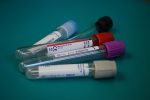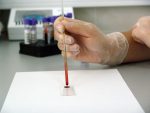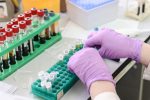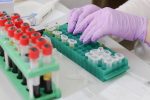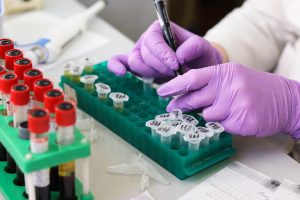
As you are reading this you have probably heard a lot about phlebotomy, and you know that this is a fast-growing career in the healthcare industry that can bring you a well-paid job in a short period of time.
After finishing the appropriate training, there are many places where you can find full-time or part-time employment as a phlebotomist.
This is due to the fact that we are experiencing significant demand for phlebotomists.
There is an increasing number of places that require phlebotomists because of a growing need for blood tests, which enable doctors to find different conditions.
Illnesses and diseases from allergies and STDs to certain cancers can be detected.
It is good to know that not only hospitals need technicians.
Blood tests are done outside of the hospital environment, too.
Places Where Phlebotomists Work
As we have already mentioned, there is a high demand for phlebotomists and medical facilities all over the United States are in constant need of qualified phlebotomists.
Here are the places where you can find work once you become a new or experienced phlebotomist.
Hospitals
Hospitals are the places that first come to one’s mind when we think about phlebotomists.
They are in need of many phlebotomists on staff and if you find employment there, your hours can be flexible.
However, you need to expect to work overnight shifts or odd hours if needed.
A phlebotomist who works in a hospital has to be ready for more action than a phlebotomist in a smaller facility and he/she needs to expect being on their feet most of the time.
The best way to get hired by a hospital is to complete your phlebotomy training there.
First, you need to find out which hospital is in need of phlebotomists so that they offer training programs or internships, and apply for them.
Once you find employment in a hospital, you will experience numerous benefits.
First, in a hospital environment, you will be working with a lot of different people and you will be a part of a team.
As hospitals are busy places, you will have to be quick.
This is a very rewarding job, as you will know that you help save many people’s lives each day.
On the other hand, even though you have passed through the training for the phlebotomy field, it does not mean that working in a hospital is for you.
Hospitals are places where you can see ugly things such as severely injured people.
If you do not consider yourself ready for these things, you should look for employment in a different working environment.
Private Practices and Clinics
We have said that hospitals are not places for everyone, so you may look for employment in other medical facilities.
You can get hired by a small clinic either as a full or part-time phlebotomist.
However, working in a smaller medical facility does not include seeing many patients per day, thus you will be getting less experience and knowledge.
The main negative aspect of working in a smaller medical facility is that not so many resources will be available to you as they are in hospitals that usually have a lab on-site.
There are fewer chances of seeing traumatic injuries, but the job duties remain the same.
Your responsibilities will be labeling and organizing blood vials, as well as making sure they get to a nearby lab.
Your job requires paying even closer attention to detail and being extra careful.
For those who are not ready to stand the fast pace of a hospital, finding employment in a smaller facility is a better option.
The American Red Cross
Once you become a phlebotomist, it is not necessary that you look for employment in a medical facility, as there are also non-medical facilities that hire phlebotomists.
The most popular organization that is constantly in need of these professionals is the American Red Cross.
You have to know that certain Red Cross phlebotomists work on a volunteer basis, usually for a day or two.
The American Red Cross needs phlebotomists only to draw blood from people who are coming to donate blood.
On the other hand, the Red Cross also has full-time and part-time employees who need to travel to different blood drives or go to areas of disaster where blood is needed.
Furthermore, community blood banks are places where you can find employment as a phlebotomist.
The blood drawn at community blood banks is usually used locally to help save lives.
Nursing Homes
The majority of older individuals are frequently in need of blood tests so that their doctors can diagnose different conditions.
They will get assistance faster if their blood is taken in a nursing home, so larger nursing homes or assisted living centers sometimes have a phlebotomist on staff.
In a nursing home, the phlebotomist’s environment is slightly different than other medical facilities and you can expect to see a handful of people each day.
A phlebotomist might have appointments with specific individuals.
It is worth mentioning that your responsibility will be blood samples labeling and delivering as most nursing homes do not have a lab on-site.
These samples will go to each patient’s physician.
VA Clinics/Hospitals
You can also be in charge of medical care for veterans in the U.S. Veterans’ hospitals and clinics.
These are places that look for medical professionals who will provide care of military vets without making them pay a full amount.
You need to know that working as a phlebotomist at a smaller VA clinic can be a volunteer opportunity, while larger VA hospitals may pay you to become a full-time phlebotomist.
Working in a place is similar to working at a nursing home.
These are also older individuals who get their blood tested regularly as their physicians need to catch a possible condition or illness as early as possible.
No matter whether you become a full-time phlebotomist at a veteran hospital or you simply choose to volunteer, this will definitely be an enriching experience as you will be able to work with veterans on a daily basis.
Emergency Clinics
Emergency clinics are open 24-hours a day and phlebotomists here need to work overnight or other odd hours.
In an emergency clinic, you will see patients in severe conditions and immediate attention is necessary.
The work pace in an emergency clinic is almost like a hospital, so this is not a good employment position for every person.
Phlebotomists are on their feet for long hours and have to move quickly.
Furthermore, the cases that come to an emergency clinic are usually serious, and getting a blood test is one of the first things a patient will need.
Mobile Phlebotomy Work
The high demand for phlebotomists opened new possibilities for phlebotomists and some of them even choose to become traveling/mobile phlebotomists.
There are facilities and organizations that hire mobile phlebotomists.
This is typical for a veteran’s hospital, as they do not need a full-time phlebotomist on staff.
So, in case their patient needs his/her blood drawn, they hire a traveling phlebotomist, who can work almost anywhere.
This is a freelance position and a great option for those who want to be their own bosses.
The main difficulty for them is to build up a client base.
However, once you find a few places that will trust your services, it will be easier to build a successful career.
Can Phlebotomists Do Volunteer Work?
Most phlebotomy jobs offer at least some flexibility and even if you find employment in a hospital, you will not be required to work the same shifts as a physician or specialist.
There are many volunteer opportunities for phlebotomists and some of them include:
- Community health centers – Those are clinics and health centers for underprivileged people and medical professionals volunteer there so as to get people the help they need.
- Prisons – Being that prisoners need medical care and routine blood draws, phlebotomists tend to do it voluntarily.
- Drug treatment centers – Drug treatment centers need phlebotomists. These people need to have their blood checked so as to make sure they are following the treatment plans. Blood tests are able to detect many types of drugs, so regular blood tests are performed on people struggling with drug addiction.
- International volunteer work – Unfortunately, many countries in the world do not have access to quality healthcare, so organizations like Doctors Without Borders go there and provide services. However, not only doctors are needed to go on trips, but phlebotomists as well. Drawing blood is necessary so that physicians can determine what might be wrong with someone. This is an ideal position for those interested in traveling.
Volunteers can work in some other places such as nursing homes and local blood drives that are often in need of volunteers so as to keep up with demand.
You might not be able to find full-time employment right away, so you can start out as a volunteer.
What is the Working Environment of a Phlebotomist?
What kind of working environment as a phlebotomist you will have depends a lot on where you find a job.
You need to know that you will be on your feet, and this is especially the case in an environment that is busy and blood samples are needed in a hurry.
A smaller space where blood samples you draw are not urgently needed will provide phlebotomists with a more relaxing working atmosphere.
This career allows you to choose your environment based on where you want to work.
The type of environment can be chosen based on your experience and level of physical stamina.
If this is your first job, the fast pace of a busy hospital can be suitable for you, but if you are looking for a job out of retirement or a career change, private practice or blood bank may be a better option.
What Are the Duties of a Phlebotomist?
As in any profession, the responsibilities of a phlebotomist can vary and this highly depends on the place where you will be work.
Generally speaking, the duties are always the same, and you should be familiar with them so as to know what to expect, thus determining whether phlebotomy is right for you.
The following duties can be expected by new phlebotomists once they start working:
- Preparing patients for a blood draw
- Making sure all the correct supplies are available and organized
- Applying a tourniquet
- Finding usable vein
- Performing blood draw
- Collecting and labeling blood samples
- Transporting blood samples to a lab
- Maintaining safety precautions
- Using proper sterilization techniques
What Qualities Should a Phlebotomist Have?
Just because there are so many opportunities for work as a phlebotomist, it does not mean that every person can become that professional.
Even though it is an excellent entry-level job and does not take a lot of training, only the right kind of person will be able to reach this successful career.
If you want to be a good phlebotomist, these are some of the characteristics that you should possess:
- Compassion and patience: These characteristics are essential as you will be working with a lot of different people, and some of them can be awkward patients. You need to have patience so as to handle every type of person, as well as compassion in order to understand their situation. Not everyone likes getting their blood drawn. A good phlebotomist should know how to calm down patients and make sure they feel as relaxed as they can be.
- Good conversationalist: You will not only be working with patients but also talk with them. The reason why you should be talking with them is to help them relax and ensure them that everything is going to be fine. The procedure requires that you ask your patient’s name, their basic information, etc. You are supposed to explain what you are doing as not to cause confusion.
- Strong organizational skills: Being that blood samples have to be correctly labeled, a good phlebotomist has to be highly organized. They have to collect vials of blood, properly send them to the lab, and find results. Paying attention to detail is an obligatory characteristic of phlebotomists.
- Clean and efficient: One of the qualities a phlebotomist should have is being tidy, and have the right equipment on hand before meeting with a patient. A phlebotomist is in charge of making everything clean and sterile, and once the procedure is finished, they have to make sure that all the tools and equipment are cleaned appropriately.
- Ability to follow the rules: What kind of rules they will need to follow depends on the facility where they work as each one has its own set of rules. Knowing how to follow rules can help to ensure both your and your patient’s safety and well-being.
Are There Risks to Becoming a Phlebotomist?
The primary risk a phlebotomist faces is accidentally getting stuck with a needle.
In this situation, he/she risks catching an illness or disease and unfortunately, dirty needles represent the most common ways diseases like HIV are spread.
Accidents can happen so it is necessary to be careful and cautious.
Another risk is accidentally sticking a patient with a needle.
So that this does not happen, proper precautions must be taken before drawing blood.
This includes sterilizing the area and using a clean needle.
If this accidentally happens, you can cause injury or illness and the patient have the right to sue you, or the facility.
Each phlebotomist needs to have professional indemnity insurance.
Hazardous materials can be found and they need to be labeled appropriately and disposed of.
Sometimes, you can find yourself accidentally exposed to these materials, which can cause health problems.
What you need to do to prevent this to happen is to take extra steps to dispose of hazardous materials the right way.
That is why following safety rules is crucial, and the potential for bad things to happen will not be great.

